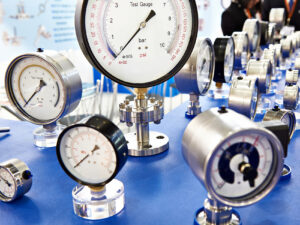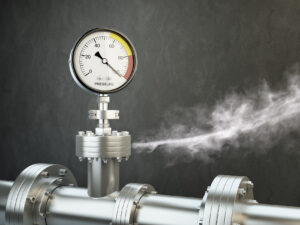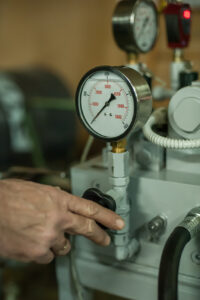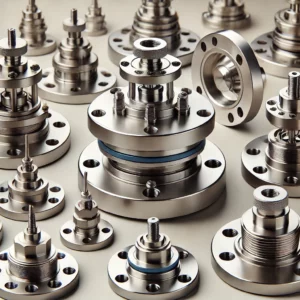Desalination plants are critical facilities that convert seawater into potable or industrial water. To ensure smooth operation, these plants rely on a variety of equipment, and pressure gauges play a vital role in monitoring and maintaining the performance of numerous systems. Here, we explore the essential applications of pressure gauges in a desalination plant.
Key Equipment in Desalination Plants Using Pressure Gauges
- Pre-treatment Systems Pre-treatment systems remove suspended solids, microorganisms, and other impurities from seawater. Pressure gauges are used in:
- Filtration Units: Monitoring pressure drop across filters helps identify clogging or inefficiencies.
- Chemical Dosing Systems: Ensuring consistent pressure is crucial for accurate chemical injection.
- High-Pressure Pumps Reverse osmosis (RO) systems, a common desalination method, require high-pressure pumps to force seawater through semi-permeable membranes. Pressure gauges monitor:
- Pump Performance: Ensuring pumps operate within safe pressure ranges to avoid damage.
- System Integrity: Detecting leaks or blockages in pipelines.
- Reverse Osmosis Membranes The heart of a desalination plant, RO membranes separate salts from water. Pressure gauges are essential for:
- Feed Pressure Monitoring: Maintaining optimal pressure for efficient salt rejection.
- Differential Pressure: Identifying fouling or scaling by comparing pressure before and after the membranes.
- Post-treatment Systems Post-treatment involves re-mineralization and disinfection of desalinated water. Pressure gauges ensure:
- Consistent Flow Rates: In systems like UV disinfection or chlorination units.
- Pump Protection: Preventing overpressure or cavitation in delivery pumps.
- Evaporation Systems (Thermal Desalination) In multi-effect distillation (MED) or multi-stage flash (MSF) systems, pressure gauges are critical for:
- Boiler Pressure Monitoring: Ensuring safe and efficient vapor production.
- Vacuum Systems: Maintaining appropriate pressure in condenser units.
- Heat Exchangers Desalination plants often use heat exchangers for energy recovery or heating processes. Pressure gauges monitor:
- System Efficiency: Ensuring pressure drops are within acceptable limits.
- Leak Detection: Identifying potential cross-contamination points.
Importance of Accurate Pressure Gauges
Reliable pressure gauges enhance the safety, efficiency, and longevity of desalination plant equipment. Key benefits include:
- Early Problem Detection: Identifying issues like fouling, scaling, or leaks before they escalate.
- Operational Efficiency: Optimizing energy consumption by maintaining proper pressure levels.
- System Protection: Preventing damage to critical components by monitoring pressure limits.
Pressure gauges are indispensable in desalination plants, ensuring the seamless operation of various systems from pre-treatment to post-treatment. By providing real-time data, they help maintain water quality, protect equipment, and improve overall efficiency. For desalination plant operators, investing in high-quality pressure gauges and ensuring their regular calibration is essential to achieving reliable performance.



